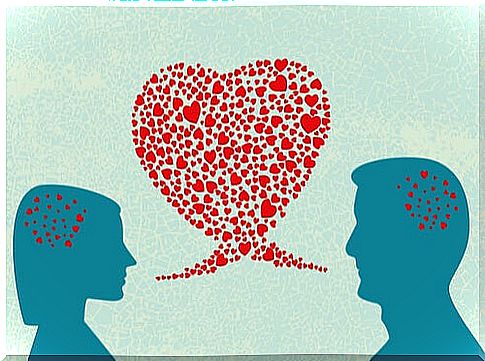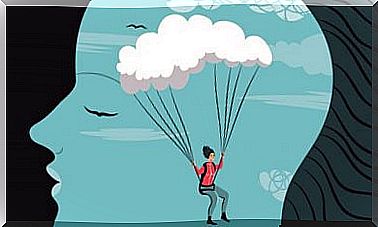Loving Makes Us Smarter, According To Neuroscience

What is usually said is that when a person is in love, in one way or another, he loses his mind. Well, neuroscience has proven that the opposite actually happens: loving makes us smarter. Of course, that intelligence does not apply exactly to the loved one, in front of whom there is usually a dose of blindness, but to many other aspects.
There are several things that change in the brain and physiology of a person who is in love. In principle, this experience is very special, precisely for that reason.
Anyone who loves, particularly in the early stage of the relationship, feels more awake, more emotionally connected to the world; he is also more empathetic and compassionate.
In reality, love makes us better human beings. However, neuroscience found that loving makes us smarter too. Why? The chemistry of love resides mainly in the brain and that transformation that comes with falling in love also reaches areas that perform cognitive functions.

Loving makes us smarter
To conclude that loving makes us smarter, a group of researchers from the University of Chicago scanned the brains of people in love. This observation, and some tests, showed that those who love also think faster, perceive the behaviors and ideas of others more clearly, and are also more creative.
To reach these conclusions, the researchers used electrodes. Once placed on the heads of the subjects who were part of the investigation, they were shown a series of photographs, including one of their partner. Likewise, they were given different names, including that of their partner.
This is how they discovered that when seeing the person they loved or hearing their name, 12 brain areas were activated. One of the areas that had a particularly intense activity was the angular gyrus, one of the regions traditionally associated with abstract thinking and creativity. An activity that did not stop when participants saw photos of other people or heard other names.
“Lose one’s head”
The results pointed in one direction: you don’t lose your head over someone; or rather, yes, you lose, but at the same time you gain a lot. In short, loving makes us smarter.
The researchers compared the “angular gyrus” to a small robot that activates a complex neural network, since this area is closely connected to other areas of the brain.
The angular gyrus has to do with functions such as processing numbers and languages, as well as highly complex autobiographical data. This means that also with love arises a special capacity to better understand our behavior, on deeper levels than in normal situations.
Both the sharpening of thought and the activation of perception make people in love better able to understand the behavior of others, on a deeper level.
The characteristics of others are more perceived and their feelings are better recognized. Hence, researchers have concluded that loving also makes us better people.

Beyond infatuation
Although it is clear that all these activations and brain reactions are more intense during the stage of falling in love, the truth is that another study found that the same effects could be observed even long after, as long as love was present, although it was no longer so effervescent as at the beginning.
An investigation by the University of California corroborated this. On this occasion, a group of couples who had been together for an average period of 21.4 years were studied. The common thing in all of them was the fact that they claimed to still feel in love with their respective partners. The researchers found that their brains reacted similarly to those of couples in love.
In particular, their brains were found to produce a higher amount of dopamine, a neurotransmitter that has important effects on mood, but also influences cognitive activity. Basically it contributes to regulate and modulate information flows. A dopamine deficit causes memory, attention, and problem-solving difficulties.
Based on all these evidences, it can be affirmed that loving effectively makes us smarter. Such intelligence not only applies to strictly cognitive matters, it also encompasses the broad world of emotional intelligence. This is one more reason to love, without fear and without measure.









